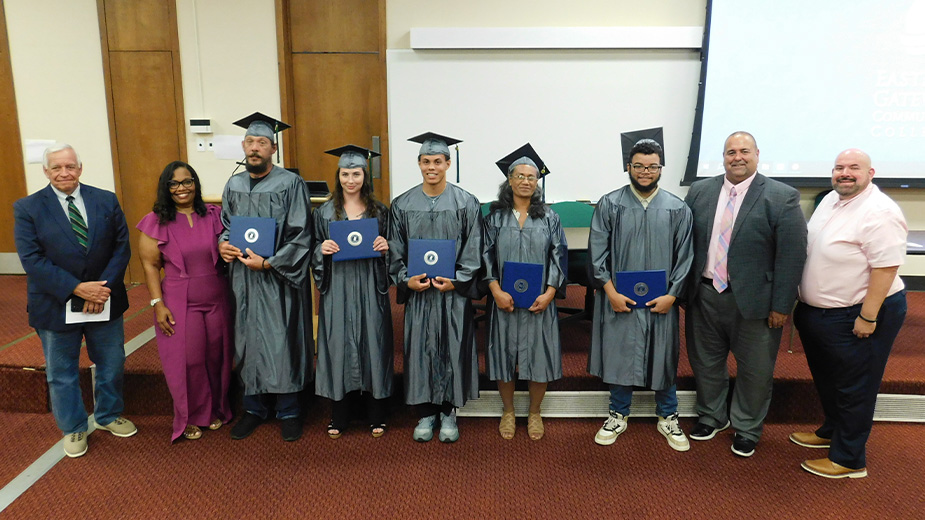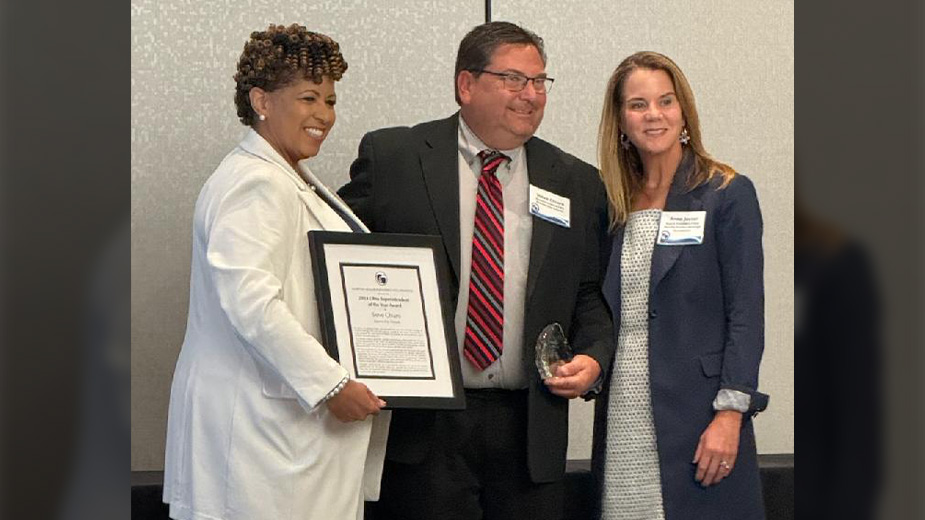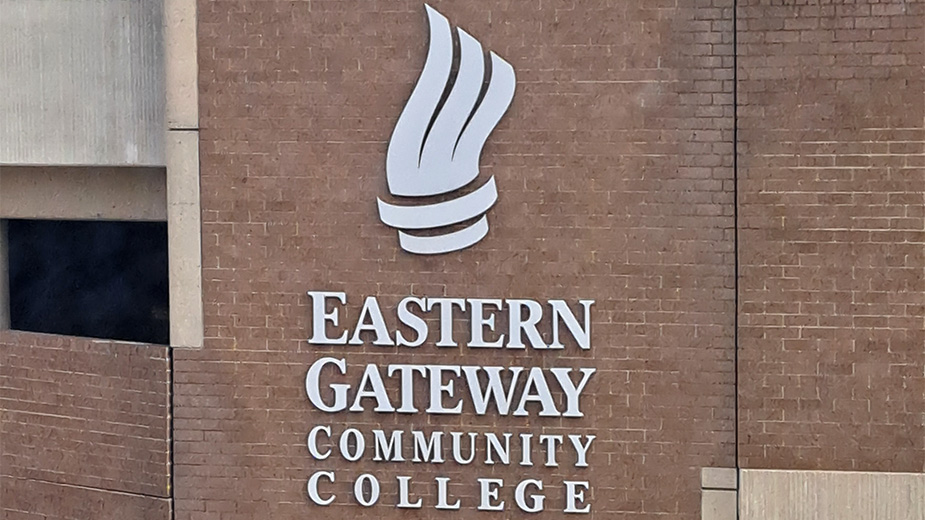YSU Issues Nine Faculty Layoff Notices
YOUNGSTOWN, Ohio — Monday afternoon, Youngstown State University announced it has issued nine faculty layoff notices.
The notices are part of YSU’s overall strategy to “ensure long-term academic vitality and financial stability,” according to a press release. The announcement follows recent news of the university’s plan to deactivate 26 academic programs starting fall 2022 following an 18-month comprehensive review of its more than 140 academic program offerings.
“While these are difficult decisions, they are necessary to further position us for success in the post-pandemic era,” YSU President Jim Tressel said.
In the release, YSU noted that the layoffs represent less than 3% of the university’s full-time faculty. Of those receiving layoff notices, two have been offered reassignment and one has chosen to retire.
What follows is the YSU statement in its entirety:
As a component of its overall strategy to ensure long-term academic vitality and financial stability, Youngstown State University has issued nine faculty layoff notices.
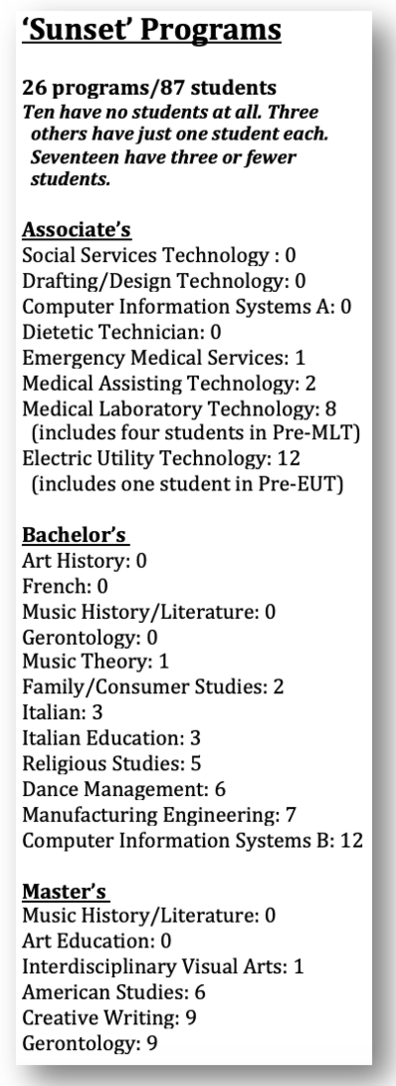
In addition, following an 18-month comprehensive review of the university’s more than 140 academic program offerings, YSU also announced today that it will deactivate 26 programs starting Fall 2022. Ten have no students and three others have just one. In all, about 90 students – less than 1 percent of all YSU students – are enrolled in the programs that will be eliminated.
“While these are difficult decisions, they are necessary to further position us for success in the post-pandemic era,” President Jim Tressel said.
The university noted that the layoffs represent less than 3 percent of the university’s full-time faculty. In addition, of the nine layoffs, two have been offered reassignment and one has chosen to retire.
The discontinued academic programs will be drawn down in such a way that all students will be able to complete their courses of study, said Brien Smith, provost and vice president for Academic Affairs. Eleven of the programs had previously been identified for “teach out” and have already begun phasing out. Smith also emphasized that all of YSU’s more than 130 other academic programs remain.
“Changes such as these can be unsettling,” Smith said. “I want to assure students that YSU’s future – and your important role in it – remains strong. You have shown much perseverance over the course of the past nearly two years. We remain committed to your success and the success of the entire YSU community.”
He added: “As enrollment has declined, we must adjust our program offerings and our faculty resources to ensure that our academic portfolio of programs and courses attracts enrollment, helps students and allows the university to survive and thrive.”
Smith said that cost-cutting, while not a strategy for a sustainable future, is necessary to free up resources to invest in growth opportunities.
The actions, he said, are part of a larger university strategy that includes optimizing student success, enhancing the quality of teaching and learning, hiring faculty in critical strategic areas and helping reduce student costs through expanded scholarships.
“We will continue working with faculty, staff and everyone in the campus community through a measured and deliberate approach toward incremental, tangible change,” he said.
Program review: More than a year ago, in response to a requirement from YSU’s national accreditation agency, the university launched an in-depth examination of all academic programs – the first such review in decades, Smith said. With the substantial participation of deans, department chairs, faculty and Academic Senate representatives, each program was assessed for alignment with mission, market and margin.

Each program was then placed into one of five categories, ranging from Grow+ (for programs with significant growth potential) to Sunset (for those facing ongoing enrollment challenges). Those assessments, including the 26 programs identified for Sunset as well as 63 as Grow+ or Grow, were shared with campus last June and accepted by the Board of Trustees in September.
Neal McNally, vice president for Finance and Business Operations, said that YSU is also regularly assessing all non-academic support areas across campus, noting that, about a year ago, the university laid off more than 40 non-faculty employees, furloughed hundreds of others and temporarily cut administrator salaries by up to 15 percent.
He also said the Board of Trustees has created an assessment process to determine the efficiency and effectiveness of all support areas, assuring alignment with mission and the strategic plan.
Enrollment: Meanwhile, as the COVID-19 pandemic swept the globe, enrollment has continued to sink at YSU, across the region and nation. YSU’s Fall 2021 enrollment is down 11 percent from just three years ago. As a result, revenue from tuition and fees is projected to drop by $5.6 million this fiscal year alone.
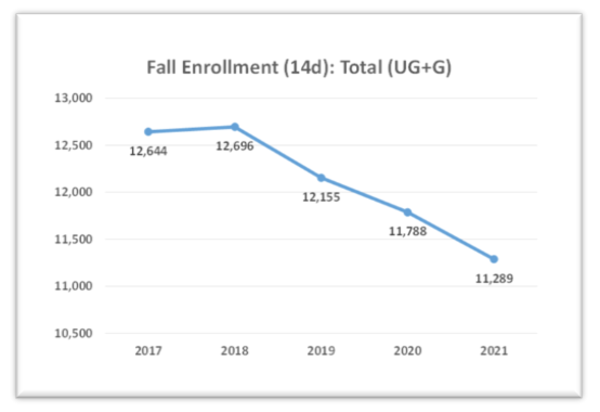
While this year’s budget was balanced through millions in one-time COVID-19 relief funds (as well as millions of dollars in grants that went directly to students), those temporary funds cannot be relied upon moving forward, McNally said. The result is a potential structural budget deficit in excess of $10 million next fiscal year.
“With the academic program review process in place, and faced with these budget challenges, it is imperative that we take action to ensure a sustainable future for YSU,” McNally said.
Smith and McNally emphasized that YSU’s enrollment challenges are not unique. Unfavorable regional demographic trends, a crowded and hyper-competitive college/university market and, to an extent, the uncertainty of COVID-19, has dragged down enrollment at regional universities nationwide, they said, noting that enrollment has fallen at nearly every public university in Ohio over the last six years.
“These are not easy decisions; they have significant, personal impact,” McNally said about the layoffs and program eliminations. “They are, however, necessary and not unlike actions taken at other universities facing similar challenges.”
Source: Youngstown State University
Published by The Business Journal, Youngstown, Ohio.

